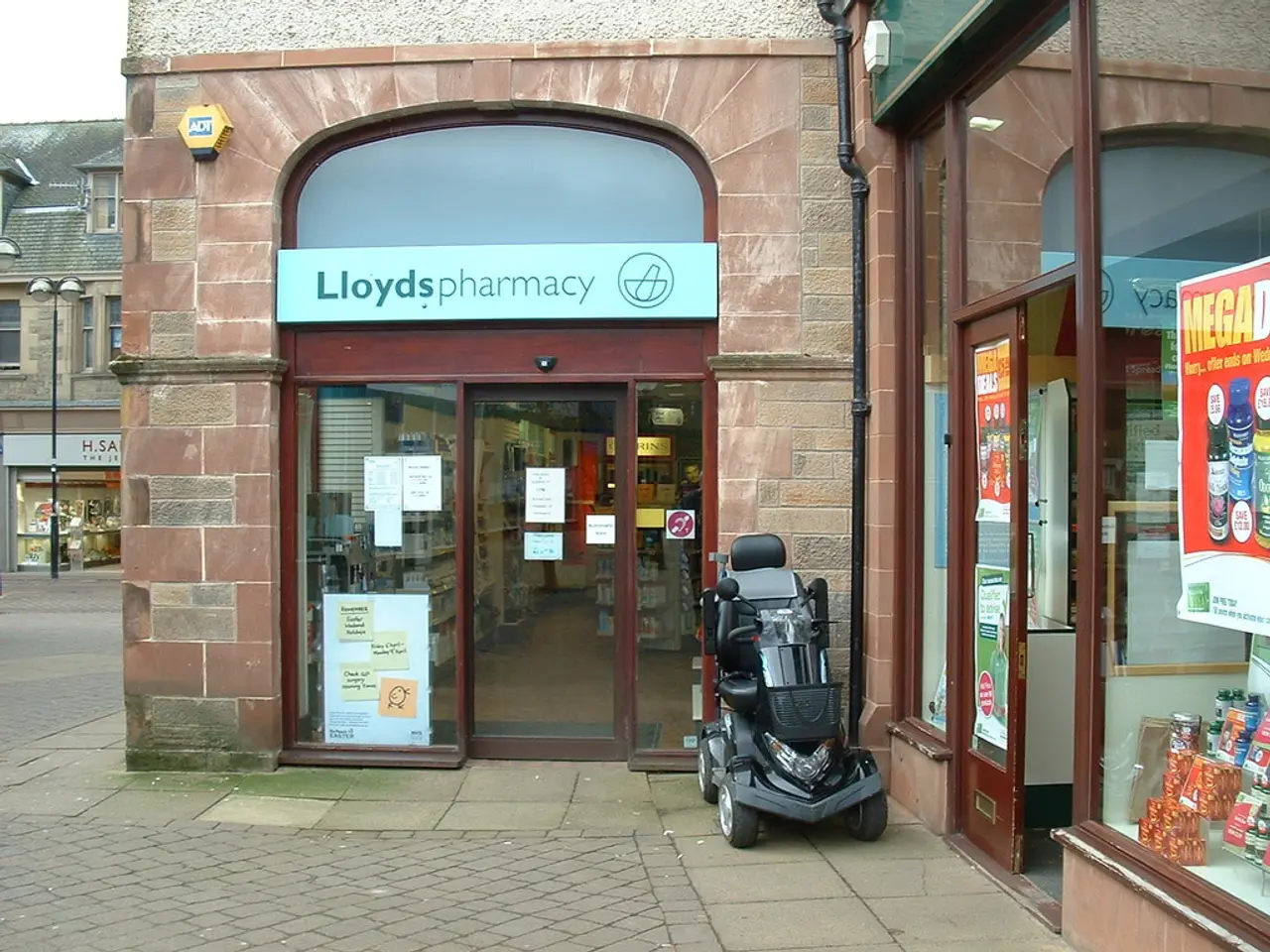Biotech firms showing growth in their genetic disease research efforts
Innovative Biotech Startups Advancing Genetic Disorder Treatments
2025 has witnessed a flourishing landscape of biotech startups making significant strides in the treatment of genetic disorders. The focus this year has been on the advancement of CRISPR gene-editing clinical trials and substantial venture capital funding aimed at accelerating therapies for rare genetic diseases.
CRISPR Clinical Trials and Genome Editing
One of the key developments in this area is the progress made in CRISPR gene-editing clinical trials. Kamau Therapeutics, for instance, acquired genome-editing intellectual property from Graphite Bio and initiated a phase I/II clinical trial for a sickle cell disease (SCD) mutation correction treatment.
Current treatments for SCD and beta thalassemia (TDT) typically use ex vivo genome editing, where cells are edited outside the body and transplanted back after chemotherapy. However, advanced approaches by CRISPR Therapeutics, Beam Therapeutics, Editas, and UC researchers are developing in vivo editing strategies that deliver gene-editing medicines directly into the body, potentially reducing the need for intensive chemotherapy and specialized facilities. Beam Therapeutics plans to start a clinical trial by the end of 2025 testing alternatives to chemotherapy to improve safety.
Efforts are also underway to target chemotherapy only to specific cells using antibodies, thereby reducing chemotherapy dosage and side effects.
Significant Funding and New Startups
Significant funding has been raised by various biotech startups this year, with Lila Sciences, a new company pioneering AI-driven autonomous labs, receiving a $200 million seed round from Flagship Pioneering. Garuda Therapeutics raised $50 million in Series A-1 to advance off-the-shelf hematopoietic stem cell therapies for bone marrow failure syndrome and beta thalassemia, including scaling up manufacturing. Callio Therapeutics secured $187 million in Series A funding, although the details of their intended indications are not yet specified.
Several rare disease startups, such as InnoSkel and others, are in clinical stages or developing diagnostics and therapies, collectively raising tens of millions in funding.
Industry and Regulatory Context
Despite major policy changes and upheavals in the U.S. Department of Health and Human Services impacting FDA and NIH operations, biopharma is seeing continued innovation in rare genetic diseases. Partnerships between major pharmaceutical companies and biotech startups are increasing to speed up clinical pipelines, especially for rare diseases and regenerative medicine.
Notable Biotech Startups
- Beacon Therapeutics, a biotech company developing gene therapies for inherited retinal diseases, based in the UK and USA, is focusing on laru-zova (AGTC-501) for X-linked retinitis pigmentosa (XLRP).
- Azafaros, a biotech company based in Leiden, Netherlands, is developing nizubaglustat for Niemann-Pick disease type C (NPC) and GM1/GM2 gangliosidoses.
- Vico Therapeutics, also based in Leiden, Netherlands, is developing VO659, an allele-preferential ASO for polyglutamine diseases like Huntington's and spinocerebellar ataxias.
- SpliceBio, based in Barcelona, Spain, is focusing on SB-007 for Stargardt disease (inherited macular degeneration).
- Actio Biosciences, based in San Diego, USA, is developing ABS‐0871, a TRPV4 inhibitor for CMT2C, a form of Charcot-Marie-Tooth disease caused by mutations that render the TRPV4 calcium channel hyperactive.
- AIRNA Therapeutics is a biotech company based in Cambridge, MA, USA, with a lead candidate, AIR‐001, for alpha-1 antitrypsin deficiency (AATD).
- Alesta Therapeutics, based in Leiden, Netherlands, is developing ALE1 for hypophosphatasia (HPP) and ALE2 for Charcot-Marie-Tooth disease.
- Glycomine is a clinical-stage biotech company that raised $115 million in a series C round in April 2025. Their lead candidate, GLM101, is for phosphomannomutase‐2 congenital disorder of glycosylation (PMM2-CDG).
- Character Biosciences is a precision ophthalmology company based in Jersey City, NJ, USA, with lead candidates CTX114 for geographic atrophy in advanced dry age-related macular degeneration (AMD) and CTX203 for intermediate AMD.
- Celosia Therapeutics, an Australian biotech company, raised $10.4 million in a series A round in November 2024. Their lead candidate, CTx1000, is a viral gene therapy for amyotrophic lateral sclerosis (ALS).
- Genespire is an Italian biotech company that raised €46.6 million ($52 million) in a series B round in September 2024. Their lead candidate, GENE202, is for methylmalonic acidemia (MMA).
- GEMMA Biotherapeutics is a biotech company based in Philadelphia, PA, USA, that raised $34 million in a seed round in December 2024. They are developing multiple gene therapy assets targeting rare diseases.
In summary, 2025 is a year of significant advancements in the field of genetic disorder treatments, with a focus on CRISPR gene-editing, in vivo editing strategies, and improving the safety and accessibility of such treatments. The shift towards AI-driven discovery and cell therapies is complementing this innovative environment.
- Kamau Therapeutics, in 2025, is conducting a phase I/II clinical trial for a sickle cell disease mutation correction treatment after acquiring genome-editing intellectual property.
- CRISPR Therapeutics, Beam Therapeutics, Editas, and UC researchers are developing in vivo editing strategies for gene-editing medicines, potentially reducing the need for intensive chemotherapy and specialized facilities.
- Lila Sciences, a new biotech startup, raised a $200 million seed round from Flagship Pioneering this year, while Garuda Therapeutics secured $50 million for off-the-shelf hematopoietic stem cell therapies.
- Several rare disease startups, such as InnoSkel, are in clinical stages or developing diagnostics and therapies, collectively raising tens of millions in funding.
- Despite regulatory challenges, biopharma continues to innovate in rare genetic diseases, with partnerships between major pharmaceutical companies and biotech startups speeding up clinical pipelines, especially for rare diseases and regenerative medicine.




